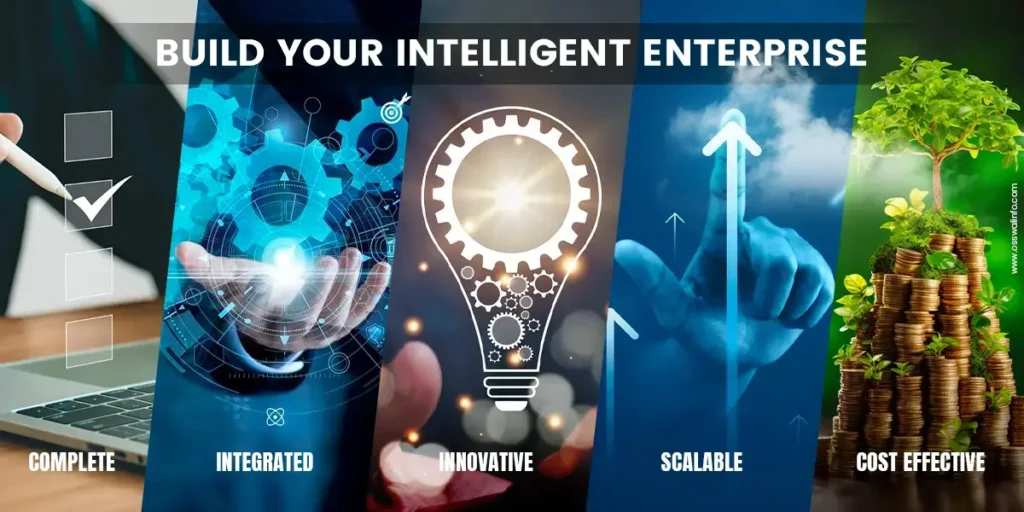Why Data Security in SAP ERP Software Is More Important Than Ever One wrong click. One weak password. One data leak—and everything can fall apart. Data is at the heart of every business today. But as systems grow smarter, so do cyber threats. That’s why protecting your data isn’t just smart—it’s survival. SAP ERP software doesn’t just manage your operations; it shields what matters most. In a world full of risks, strong data security in SAP is your first line of defense. In this article, we discuss SAP software, the importance of data security within it, and much more. So, dive into this! SAP ERP software SAP ERP is a software that helps businesses run smoothly by bringing all their important tasks—like managing money, products, customers, and employees—into one single system. Instead of using separate tools for different departments, it keeps everything connected and organized in one place. Its ability to manage sensitive and confidential information is what sets it apart. SAP assists businesses in keeping their customer information, personnel data, and business reports secure, current, and easily accessible. Because of this, a lot of businesses rely on it to keep safe as well as operate more quickly. Why Data Security Matters in ERP SAP ERP Software Store Critical Data SAP and other ERP systems serve as a company’s core nervous system. They handle and preserve a vast array of extremely private company information, including Financial data, such as vendor payments, bank transactions, revenue information, and budgets. Records of employees, including personal information, pay, tax returns, and performance evaluations. Names, contact details, purchase histories, and payment information are examples of customer data. Information on the supply chain and inventory, including delivery schedules, supplier contracts, and stock levels. Business strategy documents include projections, reports, and private emails. Having all of this data in one location makes business operations much easier, but it also makes it a popular target for hackers. The Risks of a Data Breach Are High Data breaches aren’t just technical problems—they’re business disasters. If someone gains unauthorized access to your ERP system, it can lead to Theft, fraud, and business interruptions lead to financial losses. Legal issues arise, especially when employee or customer data becomes public, violating data protection regulations such as the GDPR or India’s DPDP Act. Operational downtime occurs when a locked or compromised system halts daily operations. Reputational harm might be much more difficult to repair than financial harm since it involves partners and clients losing faith in you. According to the report, the average cost of a data breach globally is $4.45 million, and it can take over 200 days to identify and contain one. ERP Is a Top Target for Hackers Hackers are becoming more intelligent. Since they are aware of how much sensitive data is kept in ERP systems, they now particularly target them. 64% of firms experienced ERP-related breaches, according to research, with SAP systems being one of the most frequently targeted due to their extensive use. These attacks often happen through: Phishing emails are used to fool staff members into disclosing login credentials. Reused or weak passwords Vulnerabilities in unpatched software Internal dangers, such as angry workers with data access The Cost of Not Securing ERP Is Too High Although it’s easy to believe that “it won’t happen to us,” the reality is that any business could become a target. Risks exist for even small businesses that use SAP software, particularly as more functions shift online. Failing to prioritize data security can result in: Long-term financial stress. Stakeholders lose trust. Penalties imposed by regulations. lost commercial prospects as a result of damage to one’s reputation. Key Security Features in SAP ERP Software SAP ERP employs various key security features for data protection and system integrity: User Authentication: SAP employs various methods, such as passwords and Single Sign-On (SSO), to ensure that only authorized individuals gain access to the system. Role-Based Access Control (RBAC): SAP assigns users specific roles that grant them access rights, limiting their permissions to only the data and functions necessary for their job responsibilities. Encryption: SAP implements SSL/TLS protocols to encrypt data, ensuring that sensitive information remains secure during transmission and preventing unauthorized access. Audit Logging: SAP logs all user activities, providing traceability that enables users to monitor and review actions for compliance and security within the organization. Data Masking: This works perfectly to prevent unauthorized persons from accessing sensitive data but allows valid access to required data. Best Practices to Strengthen ERP Data Security To strengthen ERP data security, businesses should adopt these best practices: Updates and Patching: Businesses must apply security patches and updates to prevent known vulnerabilities. Employee Education: Companies train staff members in fundamental cybersecurity principles, such as identifying phishing attempts and securely handling sensitive data, to minimize the risk of human error. Strong role-based access control (RBAC): Implement measures to ensure that users access only the information and capabilities essential for their jobs. Regularly review and adjust user access rights. Cloud security solutions: These are complex and encompass intrusion detection systems, firewalls, and encryption, providing robust protection for any data hosted on external sites while using cloud-based ERP. Final words SAP ERP software is important in focusing data security for trust-building, continuity in business operations, and resilience in business activities. Sensitive information is secured against cyberspace threats, actually protecting the reputation of the organization as well as ensuring smooth and uninterrupted operations. As businesses have become more reliant on ERP systems for managing critical data, ensuring security for such systems has come to be critical for both holding a competitive edge and the sanctity of operations. Assuredly, through the right kind of analysis and having the right experience in implementing secure SAP solutions, Osswal Infosystem helps an organization in the building of data security to an exceedingly well protection of critical assets in compliance with some of the best industry standards. Contact us for a discussion on ways to secure SAP ERP from external threats to the future of businesses.
Why Data Security in SAP ERP Software Is More Important Than Ever Read More »





